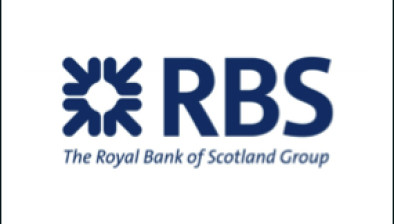RBS: Hiring activity slowed in Scotland last month
Sebastian Burnside
Hiring activity across Scotland rose at a slower pace in November, according to the latest Royal Bank of Scotland report on jobs.
Permanent staff appointments rose at the softest rate since February, while the rate of increase in temp billings moderated to a seven-month low, although the upturns remained sharp overall, according to the report.
At the same time, candidate availability decreased further, with the supply of permanent staff plummeting at a record pace while short-term staff availability fell rapidly.
Demand for workers remained historically strong despite easing on the month, which placed further upwards pressure on rates of pay. Notably, permanent starters’ salaries rose at the quickest rate on record in November.
Recruiters across Scotland reported another rise in permanent staff appointments during November, extending the current sequence of increase to 11 months. Strong demand for staff and improved market confidence were both cited in anecdotal evidence as reasons for the latest uplift. Though sharp, the rate of expansion slowed further from August’s recent peak and was the weakest for nine months. The upturn also remained softer than that seen across the UK as a whole.
A 15th straight monthly rise in temp billings across Scotland was recorded in November, amid reports of strong demand for workers, partially due to the COP26 summit. The rate of increase eased to the slowest since April, but was still comfortably above the long-run average and sharp.
Temp billings also rose at the UK level in November, with the rate of increase accelerating on the month and outpacing that seen in Scotland.
For the tenth time in as many months, permanent candidate availability across Scotland declined during November. Panellists attributed the latest reduction to lingering caution among candidates about switching roles amid the pandemic and strong demand for staff. Furthermore, the rate of decrease accelerated to the fastest on record.
November data highlighted a further reduction in the supply of temporary staff across Scotland, as has been the case in each of the last nine months. Brexit, Covid-19 and IR35 were all cited by respondents as reasons for the latest fall. The rate of decline eased to the slowest since May and was weaker than that reported at the UK level, but nonetheless sharp overall.
Recruiters in Scotland recorded another increase in permanent starters’ salaries during November, stretching the current sequence of higher pay that began last December. Anecdotal evidence attributed the latest uplift in pay to candidate shortages, and companies subsequently lifting salaries to attract top talent. Notably, the rate of salary inflation was the quickest on record and rapid.
For the twelfth time in as many months, recruiters across Scotland reported an increase in average hourly pay rates for short-term staff during November. Skill shortages, combined with strong demand for staff, had placed upwards pressure on pay according to respondents. The rate of inflation slowed further from August’s peak, but was nonetheless among the fastest recorded since the survey began in 2003.
Scottish recruiters recorded a further uplift in demand for permanent staff during November, stretching the current sequence of increase which began in February. Moreover, the rate of growth in permanent vacancies remained amongst the fastest on record and stronger than the UK average, despite easing since October.
IT and computing recorded the fastest increase in demand for permanent staff across the monitored sectors during November, followed by accounts and financial.
November data pointed to a further rise in demand for temporary staff across Scotland, with vacancies rising for the fourteenth month running. The rate of increase remained slower than August’s record, but was nonetheless among the quickest in the series history and steep overall. The expansion also outpaced the UK-wide trend.
Across the monitored job categories, hotel and catering saw the fastest uplift in temp vacancies, followed by blue collar.
Sebastian Burnside, chief economist at Royal Bank of Scotland, said: “The Scottish labour market continues to run hot midway through the fourth quarter. Hiring activity rose markedly, amid reports of strong demand for candidates, although there were signs that candidate shortages were starting to bite in November, with the rates of increase in permanent placements and temp billings the slowest since February and April, respectively.
“Skills shortages were also reflected in a further drop in candidate availability, in particular for permanent staff where the fall was the steepest on record. This led to further upwards pressure on pay in November, with rapid rises in salaries and wages for permanent and short-term staff, with the former increasing at the strongest pace in the series history.
“Although strong, the loss of growth momentum points to early signs that tightness in the labour market is beginning to weigh on its performance.”










